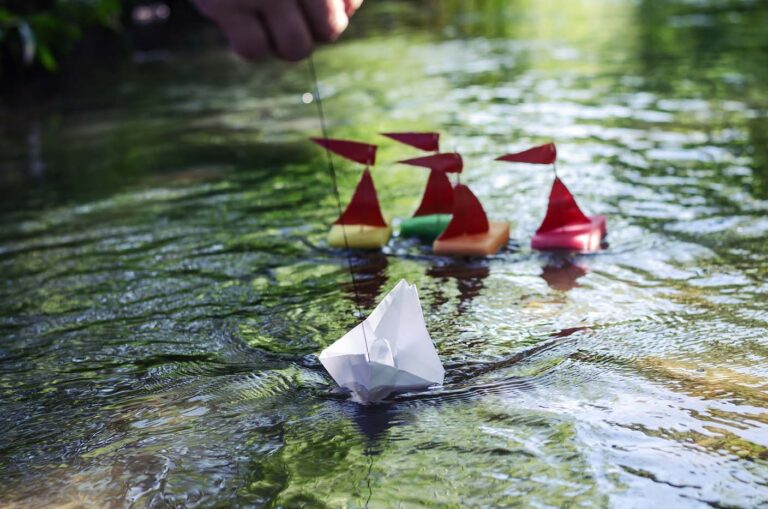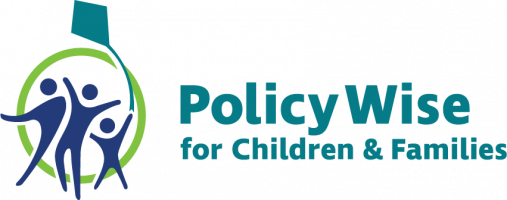Public health students gain practical skills working on Resources for Practice
Sharing knowledge is one of the best ways to improve the well-being of children, families, and communities. Providing knowledge in easy-to-find resources can spark action in the social-serving sector. It can also impart understanding among decision makers. This is why PolicyWise’s Resources for Practice team recently mentored students in knowledge mobilization, ensuring social-serving sector resources become widely shared.
The University of Alberta’s School of Public Health invited the Resources for Practice team to mentor six of their graduate students through practicum work as part of the requirements to obtain their master’s degree in public health.
The Resources for Practice team saw this as an excellent opportunity to share our approach to knowledge mobilization with these students while also increasing our ability to identify and share relevant resources on the Resources for Practice website.

About Resources for Practice
Launched in September 2023, Resources for Practice is PolicyWise’s new capacity-building resources website. We aim to make it easier for social-serving organizations to find and use resources relevant to their policymaking and practice so they can make better-informed decisions.
The website hosts our resources and a curated collection of relevant related resources for other social-serving organizations, providing direct links to:
- Webinars
- Toolkits
- Strategies
- Advocacy briefs
- Reports
- Among other types of resources
Mentoring students in knowledge mobilization
As part of the students’ practicum work, they met weekly with our Knowledge Mobilization Specialist, Leslie Obol. Together, they developed a work plan and built skills through collaborative writing and discussion. Between these meetings, the students executed their work plan.
By the end of our collaboration, the students developed a resource search strategy and writing guidelines for the website. Each student was also able to identify relevant resources and write clear summaries for them. One of the students, Emily Hussey, reflected on what they were all learning. She felt her tasks demonstrated “the ‘real world’ process of working collaboratively and iteratively.”
A reciprocal collaboration
The students were not the only ones who benefited from working collaboratively on Resources for Practice. The work we did together was truly reciprocal.
“Bringing the students on board allowed me to share my passion for teaching and collaborative writing,” Leslie explained. “They brought their diverse experiences in public health and were able acquire new skills and apply them in practical ways.”
Student Staci Hastings echoed this sentiment
of reciprocity. “The opportunity provided a safe and supportive environment for
mentorship and learning,” she explained. “At the same time, we witnessed the
real-time impact of our efforts and learning on the Resources for Practice website.”

As an organization, we benefited from the students’ concrete contributions to the website. For their part, the students came away with skills in knowledge mobilization applicable to future work. “I ended up learning a lot and finding a bunch of great resources that I can incorporate into my practice,” Emily told us.
Future Opportunities
We are excited about strengthening our relationship with the School of Public Health. We cannot wait to collaborate with them on the next iteration of the course. Opportunities like this provide:
- Students a mentor to work with in developing their knowledge mobilization skills, and
- Us with the ability to share more social-serving sector resources
Our collaboration also has the potential to extend beyond this specific relationship by sharing knowledge and building capacity across the social-serving sector. “Effectively communicating relevant information to an array of audiences is an invaluable skill in public health,” Staci asserted.
We are excited to see what the future holds for these students as they progress in their careers with these new skills.
If you would like to see the work the students collaborated on, follow the links to Resources for Practice below:
- Youth Suicide Prevention: A Suicide Prevention Toolkit
- THIS is Housing First for Youth
- By Their Side: A Step-by-Step Guide for Adults Helping Youth with their Mental Health
- How to Improve Workplace Equity: Evidence-based Actions for Employers
- Building Strength, Inspiring Hope: A Provincial Action Plan for Youth Suicide Prevention 2019 – 2024

